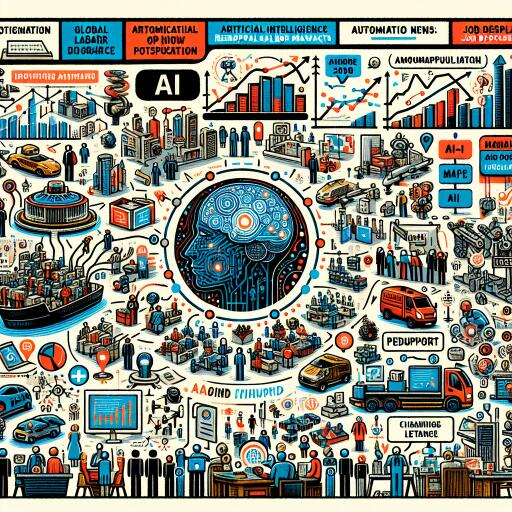AI to Substantially Transform Global Labor Markets by 2030: Report
In an era where artificial intelligence (AI) is advancing at a breakneck pace, a new study by the McKinsey Global Institute casts a spotlight on the profound impact AI is poised to have on labor markets across the globe. With a keen focus on the intersection of AI, work, and skills, the study unveils how generative AI technologies could redefine the landscape of employment by the year 2030.
The study, titled “A new future of work: The race to deploy AI and raise skills in Europe and beyond,” unfolds a narrative where AI’s integration into the workforce could lead to the automation of up to a third of working hours in both the United States and Europe. This transformative shift is projected to generate a dual impact: an intensifying demand for high-skilled, well-compensated roles juxtaposed against a swelling surplus of labor in lower-wage sectors. Predictions indicate a burgeoning increase of 1.8 percent in high-wage positions, contrasted with a 1.4 percent decline in low-wage jobs.
Germany emerges as a focal point in this discourse, with estimations suggesting that AI could reshape the employment landscape for roughly 3 million workers, equating to 7 percent of its total labor force. The brunt of this transformation is anticipated to be felt predominantly within office and administrative sectors, which are expected to account for over half of the jobs impacted by AI advancements.
However, it’s not all doom and gloom. The McKinsey report underscores a pivotal opportunity for the workforce to pivot and adapt through comprehensive upskilling and reskilling initiatives. Emphasizing the essential role of continuous learning, the study advocates for a proactive embrace of training programs to harness AI’s full potential and mitigate its disruptive effects. The imperative for such initiatives is clear—without a concerted effort to elevate the skill set of the global workforce, the promise and capabilities of AI may reach a bottleneck, hindering its transformative benefits.
The call to action is particularly directed at organizational leaders and managers, urging them to prioritize investments in employee education and training programs. Such strategic investments are deemed crucial for empowering employees to navigate the evolving demands of their roles in an AI-driven future. By fostering an environment that champions skill development and lifelong learning, businesses can unlock new territories of innovation and productivity, ensuring they remain competitive in a rapidly changing economic landscape.
As we march toward 2030, the interplay between AI technologies and labor markets will undoubtedly continue to evolve, shaping new paradigms of work, skill development, and employment opportunities. The McKinsey report serves as a timely reminder of the urgency to prepare for these inevitable changes, accentuating the need for individuals and organizations alike to adapt, evolve, and thrive in the new future of work.









